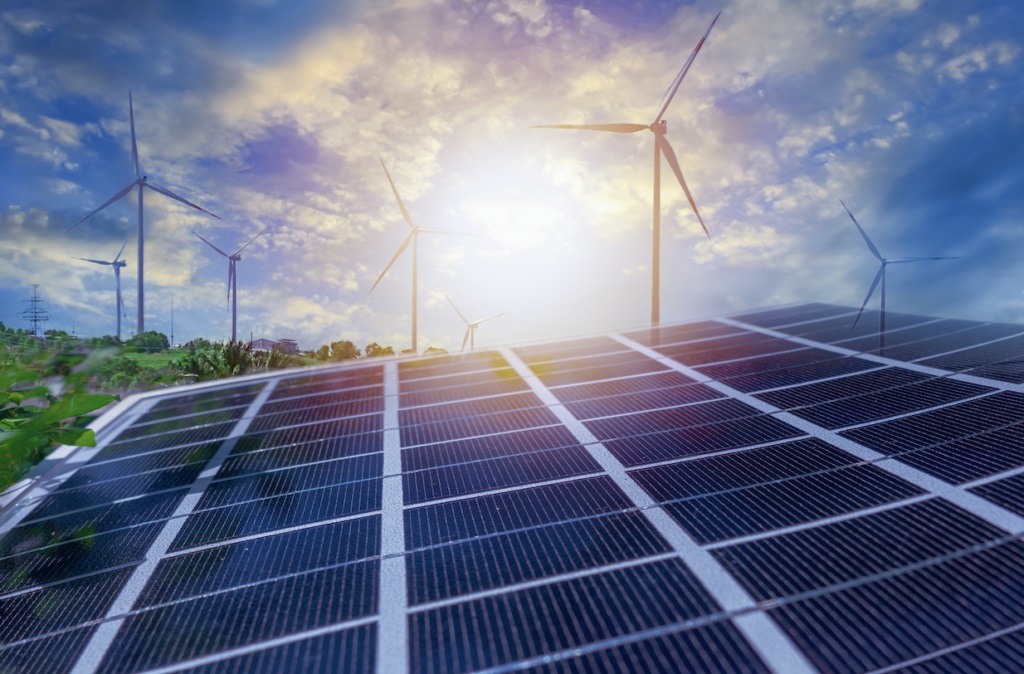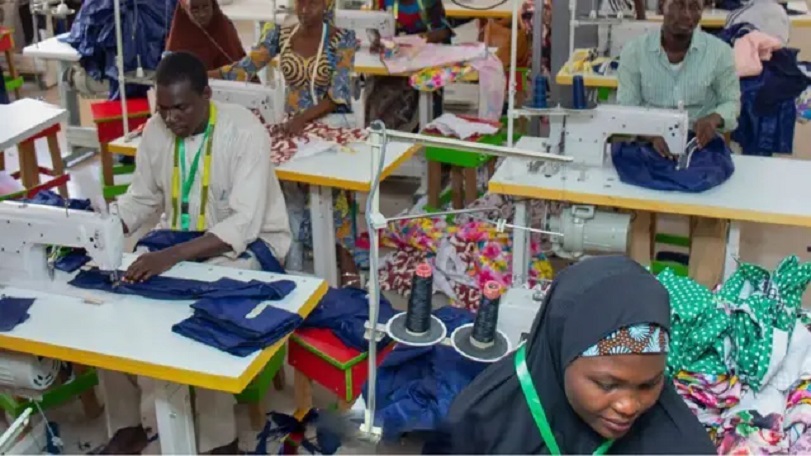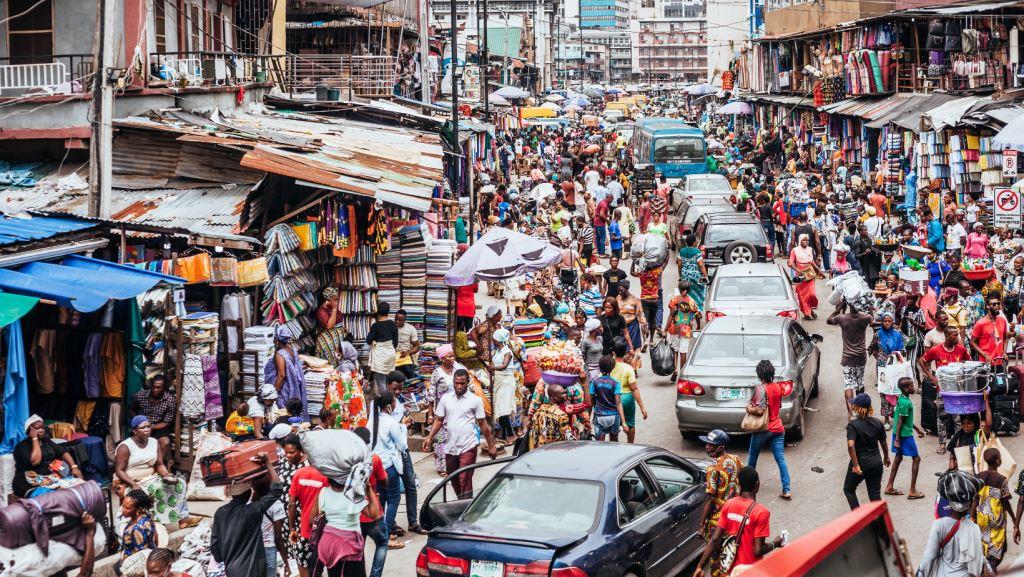General
Nigeria, Others Must Embrace Clean Energy Transition—PwC

By Adedapo Adesanya
Nigeria and other African countries have been tasked with embracing the clean energy transition to solve energy inequality by leveraging the African region’s enormous renewable energy potential.
This call was made by energy, utilities, and resources experts in one of the world’s top consultancy firms, PricewaterhouseCoopers (PwC) at a media call to launch the Africa Energy Review 2023 Report on Monday.
According to Mr Andries Rossow, PwC’s Africa Energy, Utilities, and Resources Leader, Africa is a net exporter of energy with more potential due to the diversity of the continent’s energy portfolio but despite this, the continent suffers from chronic underinvestment.
“Africa received only a small fraction of global energy investment with about 0.5 per cent directed towards transmission and distribution to energy infrastructure networks,” he said.
He added that it was imperative that investment blockages are identified and addressed, with a proper public and private partnership paramount to help the continent tap into its under-prioritized energy structure.
He said that given the energy poverty levels on the continent, there is a crucial need to develop fossil fuel energy resources that are geared towards its economic development needs. This can be achieved by tapping the use of sustainable resources like lithium, copper, and cobalt among others.
“As a net exporter of energy, the continent is well-positioned to profit from development in clean energy.”
On his part, Mr Pedro Omontuemhen, PwC Africa Oil and Gas Lead, for West Africa, the chances to catch up with North Africa which has proximity to Europe’s energy needs, remains untapped.
He examined that the region, which includes Nigeria and other new players like Senegal and Mauritania, has huge potential for investment and growth, adding that it could enjoy the perks of being a net exporter of energy.
In Nigeria’s case, he said that there needs to be a crucial tackling to issues of oil theft, which according to him has become a profitable venture that is telling on the country.
For Central Africa, he said the region which is heavily impacted by Africa’s second-largest crude producer, Angola, faces losing impact as it lacks fresh finds among depleting resources while limiting Liquified Natural Gas (LNG) export growth.
He tasked countries in the region which has faced coups in Gabon and political instability risk in Cameroon on the need for renewable investment with a particular focus on hydropotential.
For Mr Roelof van Huyssteen, Energy Regulation Expert, for East Africa, advancements in Mozambique, Tanzania, Kenya, and Uganda are indicators to act quickly with opportunities for LNG, geothermal, and oil while for Southern Africa, it is a new frontier market that should address old infrastructure challenges and work on collaboration.
As African countries face the challenge of how to balance energy security, climate change, and sustainable development objectives, the investment into Africa’s renewables, oil and gas is pivotal to its growth as domestic and international energy market demands can be met through its resources.
General
Nigerian Bottling Company Bridges Education, Employability Gap

By Modupe Gbadeyanka
The Nigerian Bottling Company (NBC) has reaffirmed its determination to bridge the gap between education and employability in the country by sustaining its flagship Youth Empowered (YE) programme.
This initiative provides hands-on learning, real-world insights, and access to career-shaping opportunities to young Nigerians.
The 2026 edition of the scheme commenced on February 2 at the University of Lagos (UNILAG), with participants mainly young people between the ages of 16 and 35.
A statement from the organisation said this year’s rollout will expand to more tertiary institutions, including the Federal University of Technology, Akure (FUTA). This follows a successful 2025 tour that reached seven cities across the country, including Makurdi, Jos, Benin, Kaduna, Asaba, Akure, and Port Harcourt.
Participants in the 2026 programme will receive training across key modules designed to support personal, professional, and business growth, including Business Life Skills, Adaptability and Resilience, Financial Literacy, Customer Service and Communication, Sales and Negotiation Skills, and Workplace Ethics.
The sessions will also feature breakout workshops on Business Planning, Project Management, and Time Management, alongside the Director’s Grant Pitch Competition, where participants can pitch their ideas for a chance to win business funding.
In addition to skills development, NBC’s People and Culture team will be present throughout the programme to identify outstanding talent for future opportunities within the organisation, further strengthening the connection between learning, employment, and long-term career growth.
One of the participants at the UNILAG training, Waliat Adedogun, who received a cash grant through the Director’s Grant Pitch Competition to support her small business, said: “Youth Empowered gave me more than training; it gave me clarity and confidence. Winning the grant means I can finally take my business idea from a dream into something real. I now feel prepared to build, grow, and create opportunities not just for myself, but for others too.”
Since its launch in 2017, the scheme has impacted more than 70,000 young Nigerians, equipping participants with practical skills, confidence, and exposure needed to succeed in today’s dynamic workplace and entrepreneurial landscape.
This year’s programme is being delivered in collaboration with Fate Foundation as the implementing partner, with funding support from The Coca-Cola HBC Foundation.
Last year, 10 beneficiaries were selected for six-month paid internships across NBC locations in Lagos, Ibadan, Asejire, and Challawa, gaining direct industry exposure.
Additionally, three outstanding participants received sponsorship for an all-expenses-paid intensive culinary training programme and were awarded N1 million each to support the launch of their businesses.
General
INEC Fixes February 20 for 2027 Presidential, NASS Elections

By Modupe Gbadeyanka
The 2027 presidential and National Assembly elections will take place on Saturday, February 20, the Independent National Electoral Commission (INEC) has revealed.
In a notice for the 2027 general polls issued on Friday, the electoral umpire also disclosed that the governorship and state assembly elections for next year would be on Saturday, March 6.
Speaking at a news briefing in Abuja today, the chairman of INEC, Mr Joash Amupitan, expressed the readiness of the commission to conduct the polls next year, which is 12 months away.
The timetable issued by the organisation for the polls comes when the federal parliament has yet to transmit the amended electoral bill to President Bola Tinubu for assent.
This week, the Senate passed the electoral bill, reducing the notice of elections from 360 days to 180 days, while the transmission of results was mandated with a proviso.
Recall that on February 4, INEC said it was ready to go ahead with preparations for the elections despite the delay in the passage of the amended electoral law of 2022.
General
NGIC Pipeline Network to Experience 4-Day Gas Supply Shortage

By Modupe Gbadeyanka
The pipeline network of the NNPC Gas Infrastructure Company Limited (NGIC) will witness a temporary reduction in gas supply for four days.
This information was revealed by the Chief Corporate Communications Officer of the Nigerian National Petroleum Company (NNPC) Limited, Mr Andy Odeh, in a statement on Thursday night.
A key supplier of gas into the NGIC pipeline network is Seplat Energy Plc, a joint venture partner of the state-owned oil agency.
It was disclosed that the facility would undergo routine maintenance from Thursday. February 12 to Sunday, February 15, 2026.
The NNPC stated that, “This planned activity forms part of standard industry safety and asset integrity protocols designed to ensure the continued reliability, efficiency, and safe operation of critical gas infrastructure.”
“Periodic maintenance of this nature is essential to sustain optimal system performance, strengthen operational resilience, and minimise the risk of unplanned outages,” it added.
“During the four-day maintenance period, there will be a temporary reduction in gas supply into the NGIC pipeline network. As a result, some power generation companies reliant on this supply may experience reduced gas availability, which could modestly impact electricity generation levels within the timeframe.
“NNPC Ltd and Seplat Energy are working closely to ensure that the maintenance is executed safely and completed as scheduled. In parallel, NNPC Gas Marketing Limited (NGML) is engaging alternative gas suppliers to mitigate anticipated supply gaps and maintain stability across the network,” the statement further said.
“Upon completion of the maintenance exercise, full gas supply into the NGIC system is expected to resume promptly, enabling affected power generation companies to return to normal operations,” it concluded.
-

 Feature/OPED6 years ago
Feature/OPED6 years agoDavos was Different this year
-
Travel/Tourism10 years ago
Lagos Seals Western Lodge Hotel In Ikorodu
-

 Showbiz3 years ago
Showbiz3 years agoEstranged Lover Releases Videos of Empress Njamah Bathing
-

 Banking8 years ago
Banking8 years agoSort Codes of GTBank Branches in Nigeria
-

 Economy3 years ago
Economy3 years agoSubsidy Removal: CNG at N130 Per Litre Cheaper Than Petrol—IPMAN
-

 Banking3 years ago
Banking3 years agoSort Codes of UBA Branches in Nigeria
-

 Banking3 years ago
Banking3 years agoFirst Bank Announces Planned Downtime
-

 Sports3 years ago
Sports3 years agoHighest Paid Nigerian Footballer – How Much Do Nigerian Footballers Earn


















